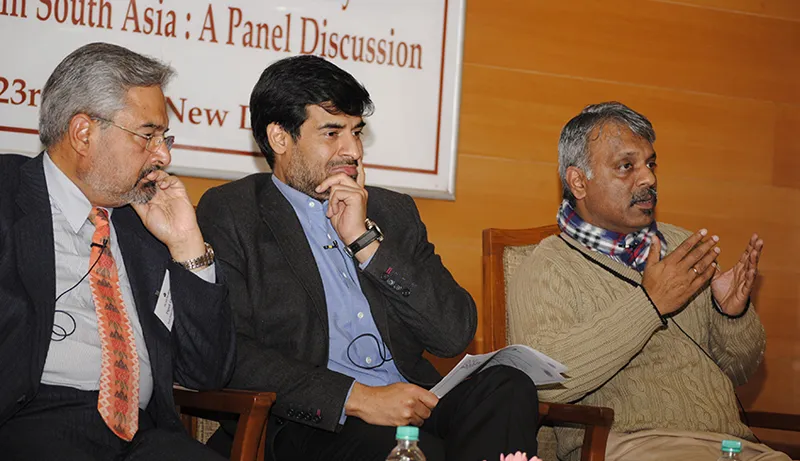-
CENTRES
Progammes & Centres
Location
There is a need for a new regional arrangement in South Asia to tap water as it is a regional common issue that should be handled collectively rather than dividing it.

There is a need for a new regional arrangement in South Asia to tap water as it is a regional common issue that should be handled collectively rather than dividing it. This was the consensus view among panellists and participants of a panel discussion on "Transboundary Water Governance in South Asia" organised by Observer Research Foundation and The Asia Foundation at the ORF campus in Delhi.
There was also a consensus that there is a certain level of dichotomy involved in issues related to water. The populist sentiment on the treaties is that they are flawed. However, it can be argued that they are fundamentally and intrinsically strong, according to the panellists.
Noting that South Asia is more of a believer of form rather than substance, former Nepal Minister of Water Resources Dipak Gyawali suggested that treaties need to move beyond just making governments look good and should focus more on feasibility.
Mr. Gyawali, now with the Nepal Water Conservation Foundation, pointed out an extremely significant fact that issues within countries override issues between countries in South Asia. He said the real problem lies in the proclivities of civil society and business leaders.
He suggested that discussions on water go one step further into the realm of marginalised rivers as they hold more importance for the people and it is easier to move up from there in negotiations.
Mr. Uttam Kumar Sinha of the Institute of Defence and Security Analysis furthered Mr. Gyawali’s points by focusing more on the need to understand the political, sociological and legal aspects of water in order to frame a cooperative environment in the future.
Mr. Sinha said that there is a learning curve attached to the study of water that is showing an upward trend. He advanced the idea that South Asia is deeply hydrologically connected and there is a pressing need to bring in new knowledge and an inter-disciplinary approach. This would further fuel the learning curve and make it move upwards, he said.
Moderating the discussion, Mr. Samir Saran, Vice President, ORF, highlighted some of the pressing concerns related to water that are being faced in the region today. He pointed out that ORF’s journey in understanding water issues has moved to a new framework marked by interrogation and discussion. Some of the key points that demand immediate attention are the role of state and civil society, lessons that can be gleaned from water disputes in other geographies as well as the issues of pricing and access.
(This report is prepared by Pooja Suri, Research Intern, Observer Research Foundation, Delhi)
The views expressed above belong to the author(s). ORF research and analyses now available on Telegram! Click here to access our curated content — blogs, longforms and interviews.